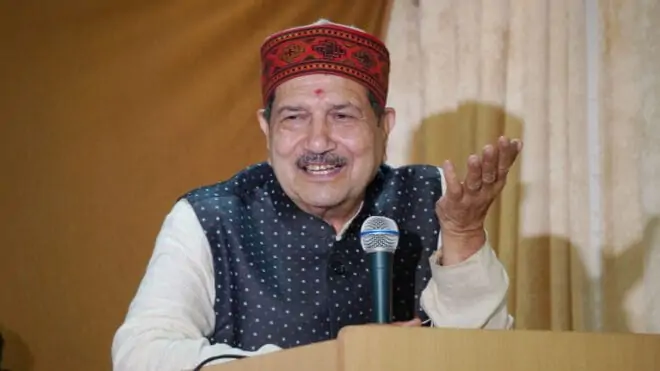New Delhi [India]: A special dialogue session was held with madrasa students in Delhi on Sunday as part of the “Harmony Week” initiative organized by the Muslim Rashtriya Manch (MRM).
The session was attended by Indresh Kumar, senior member of the Rashtriya Swayamsevak Sangh (RSS) and mentor of MRM, who emphasized the importance of national identity. He urged students to prioritize their identity as “Hindustani” above all else, highlighting that education should extend beyond textbooks to include values such as humanity, patriotism, and unity.
“The greatest religion is humanity, the greatest action is patriotism, and the greatest identity is ‘Hindustani,'” Indresh Kumar stated, encouraging the students to adopt these principles to eliminate hatred and discrimination.
The event was marked by patriotic slogans such as “Inquilab Zindabad,” “Vande Mataram,” and “Jai Hind.” Speakers at the gathering also honored India’s freedom fighters, emphasizing that freedom is both a right and a responsibility.
Call for Modern Education
Indresh Kumar interacted with students, asking them about their career aspirations and encouraging them to aim high. “What do you want to be when you grow up? A scientist, doctor, engineer, or an administrative officer?” he asked, urging them to dream big.
He underscored the importance of combining religious education with modern subjects, stating that proficiency in mathematics, science, social studies, and technical education is necessary for success in various fields.
“If a child aspires to be a doctor, they must not only be knowledgeable in religious texts but also excel in physics, chemistry, and biology. Similarly, to become an engineer, a deep understanding of mathematics and science is essential. To become an administrative officer, one needs reasoning skills, knowledge of law, and awareness of contemporary issues,” he explained.
He appealed to parents to ensure that their children receive both religious and modern education, enabling them to contribute to nation-building. “Knowledge is the greatest power in today’s world. Every community must focus on education for a better future,” he added.
“Be First a Hindustani”
During his speech, Indresh Kumar repeatedly emphasized the need for national unity and identity. “Whatever you want to be—doctor, engineer, officer, scientist—first and foremost, identify yourself as Hindustani,” he stated.
He also recalled India’s freedom fighters, including Mahatma Gandhi, Subhash Chandra Bose, Dr. Zakir Hussain, and Sardar Patel, stressing that India’s freedom was achieved through the unity of all communities. “When we say ‘Jai Hind,’ it is not just a slogan; it is a symbol of our culture. We need to strengthen this culture,” he said.
Education, Employment, and Healthcare Initiatives
Dr. Shahid Akhtar, acting chairman of the National Commission for Minority Educational Institutions (NCMEI), stressed the need to integrate modern subjects into madrasa education in alignment with the National Education Policy (NEP) 2020. “Without change in education, progress will be difficult,” he noted.
Dr. Shalini Ali, National Convener of MRM, highlighted the importance of women’s education. “An educated woman educates an entire family. MRM is committed to ensuring that every poor and needy child, especially girls, receives education,” she said. She also announced training programs for self-employment, including sewing centers, tuition centers, and computer training facilities in Delhi, Uttar Pradesh, Bihar, and Rajasthan.
Additionally, MRM is expanding its healthcare initiatives. In Bokaro, Jharkhand, the “Medicine Cancer Hospital and Research Center” with 550 beds was inaugurated to provide affordable cancer treatment to patients in Jharkhand and Northeast India. “Our goal is to provide healthcare to every poor and needy person,” said Dr. Majid Talikoti, National Convener of MRM and the hospital’s managing director.
Nationwide Activities During ‘Harmony Week’
The “Harmony Week” campaign extended beyond Delhi, with MRM workers participating in service activities across India:
- Social Service: Ration, warm clothes, blankets, medicines, and fruits were distributed in Maharashtra, Madhya Pradesh, Rajasthan, Uttar Pradesh, Bihar, Jharkhand, and Uttarakhand.
- Healthcare Support: Blood donation camps were held in Lucknow and Dehradun.
- Environmental Initiatives: Cleanliness drives and tree-planting campaigns took place in Bhopal and Jaipur.
- Interfaith Harmony: Prayers for peace and unity were conducted in mosques, temples, churches, and gurudwaras.
- Community Engagement: “Harmony Yatras” were organized in Patna and Bhopal, with participation from people of all communities.
Leaders at the event reiterated their commitment to education, health, employment, and social service, stating that “Harmony Week” is not just a program but a continuous mission for national service, brotherhood, and unity.


